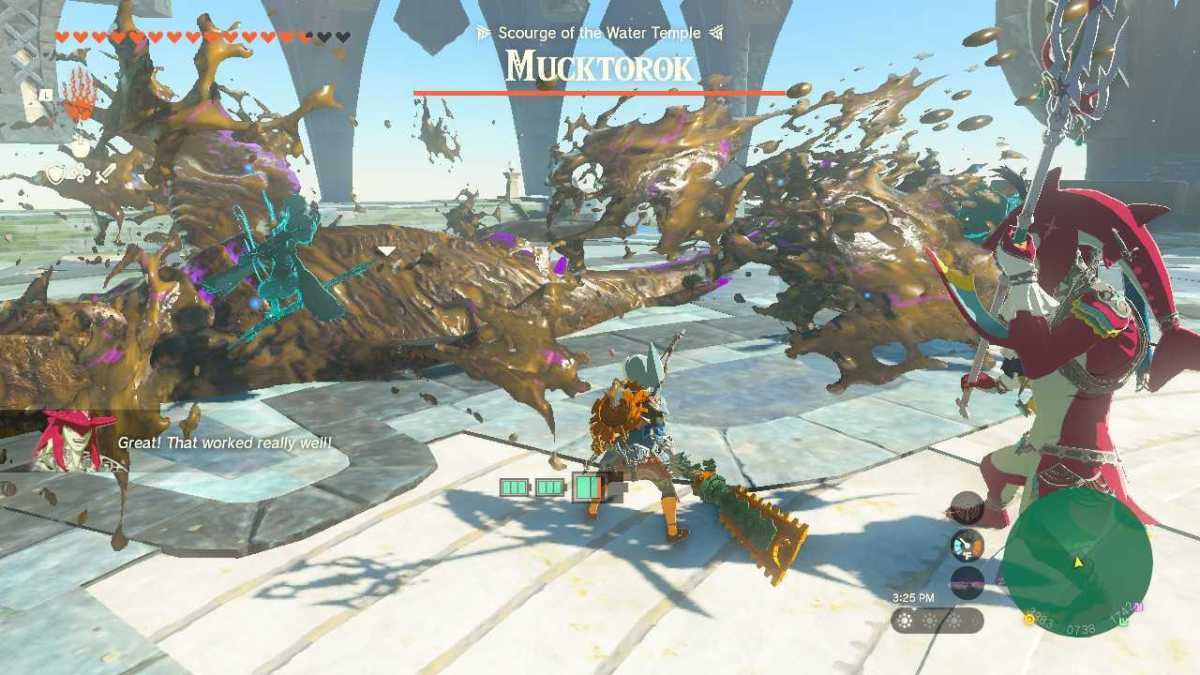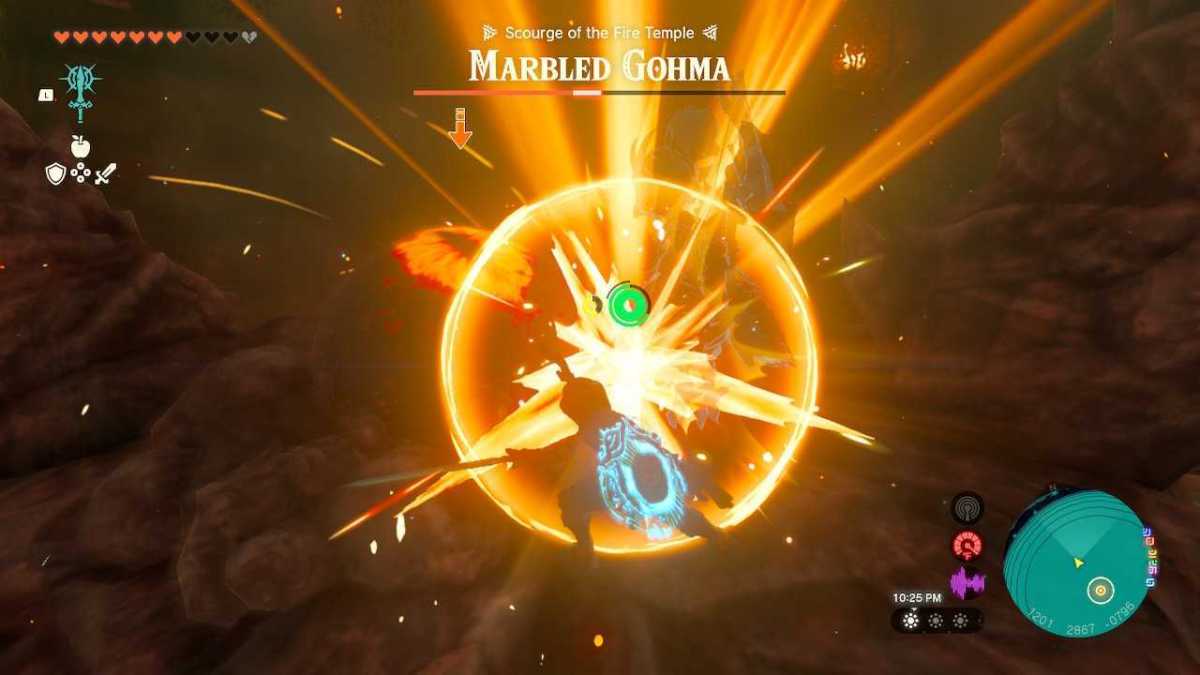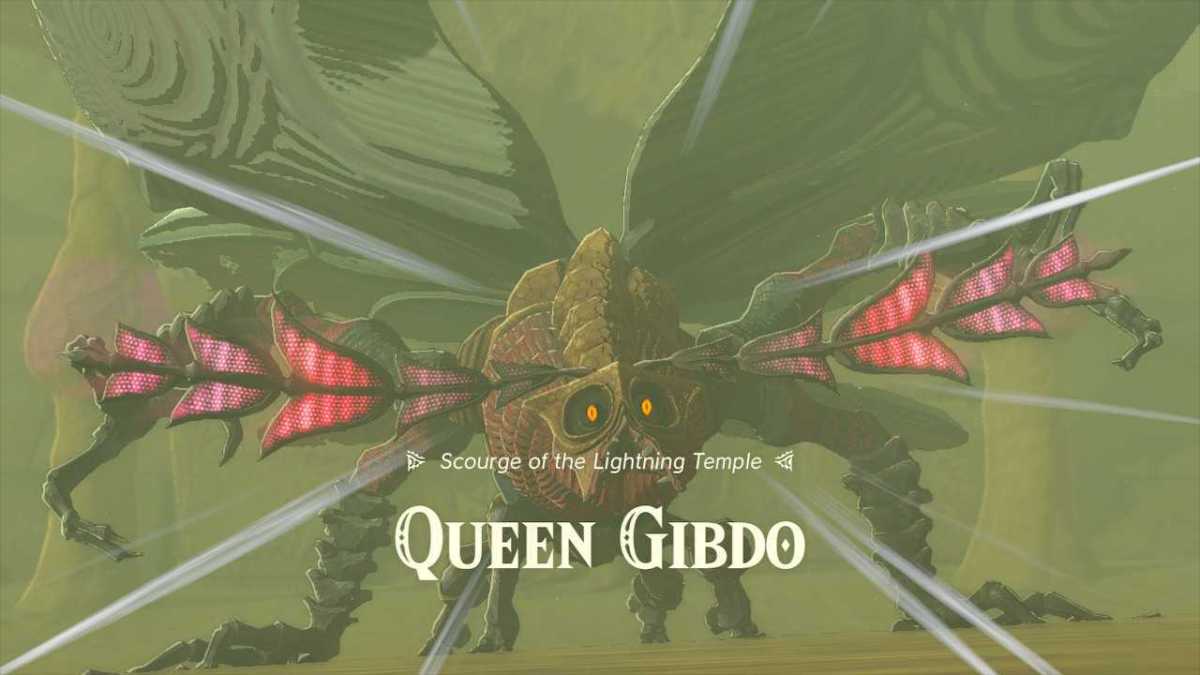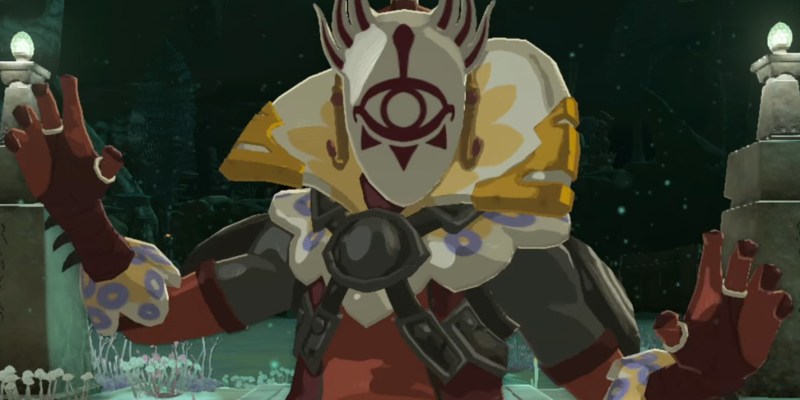This article contains light spoilers for some bosses in The Legend of Zelda: Tears of the Kingdom.
The Legend of Zelda: Breath of the Wild had a handful of bosses, with all of the dungeon bosses being mild variations of each other. In concept, it made sense given the open nature of the game and how you could tackle the dungeons in any order you wanted. However, that also meant that those bosses lacked distinct personalities and could be tackled in similar fashions. Nintendo seemed to recognize this and made an effort to, at the very least, make the bosses distinct from each other in The Legend of Zelda: Tears of the Kingdom. The result is that the bosses actually feel like unique challenges for the player, while also playing on series traditions in new and unique ways.
Most of the dungeon bosses in Tears of the Kingdom adhere to design decisions that were present in earlier Zelda games. When you reached a boss in a game like Ocarina of Time, the boss served as a test of whichever item you had gotten inside of the dungeon, like the bow in the Forest Temple or Mirror Shield in the Spirit Temple. Here, there are no specific items that you acquire, but rather new abilities thanks to the Sages that accompany you. You’re given that ability on your way to the dungeon, but the dungeon serves to teach you how to use that ability, with the boss serving as the final exam.
And yet, no boss does this in the same way. When you fight Colgera in the Wind Temple, using the Power of Wind isn’t actually required to defeat him. You mostly use that ability to dodge his attacks, but even then those attacks are slow enough that you may not need to use it. Contrast that with the Mucktorok, a boss where, while you can hurt it without using the Power of Water, the game naturally steers you in that direction once you see its abilities. This feels like a nice change of pace compared to the earlier games where all of the items were used in an almost interchangeable way to complete boss battles.

But the bosses themselves can function as complex puzzles in Tears of the Kingdom. Take the Mucktorok, probably the most annoying boss in the game. In the second half of the fight, he’ll spew a lot of sludge, limiting your movement and your ability to attack him. While he does emit some sludge in the first half, the amount he generates in the second phase is just obscene, making you think about how you can even attack him in this state. He moves wildly around the arena, and even when you do get off a hit, he jumps in-between the pools of sludge faster than you can move and faster than you can clean them. How could I actually defeat him?
This was a question that I had never faced before in a Zelda boss fight. Sure, there were a few bosses in the franchise’s past where I had questioned how to deal damage to them, but this was different. The Mucktorok made me change tactics in a meaningful way, shifting how I approached the combat encounter. No longer was I just spamming the Power of Water to hurt him. Now I needed to use constructs and midair attacks via the Power of Wind to stop him from moving and lay on the pain. Unlike earlier Zelda bosses, using the ability I got for the dungeon was no longer the ticket to success. I had to use all of the tools at my disposal to defeat the ugly little squid.
But chances are if I didn’t have the Power of Wind, I would have found the Mucktorok fight to be nearly impossible. One of Breath of the Wild’s strengths was being able to approach the world and the dungeons in any order I wanted, but when it came to boss encounters, that never really amounted to anything. If there was a difference in how much health a boss had depending on which Divine Beast I went to, it wasn’t apparent. Here I genuinely thought that the order in which I approached the bosses mattered, and it affected the game’s difficulty.

Like most players, I went to the Wind Temple first and had a showdown with Colgera. Despite his size, Colgera was actually an easy boss to defeat once you realized how to hurt him. The formula was simple, but it served as a good introduction to how bosses would be structured and fought. I then made my way to the Lost Woods on my way to Death Mountain and proceeded to be curb-stomped by Phantom Ganon, who gave me a surprise encounter that was different from most of the dungeon bosses in the game.
Unlike with previous versions of the boss, Phantom Ganon is a pure combat encounter. Depending on which variation you encounter, he’ll brandish a different weapon and you need to dodge, parry, and attack accordingly if you want to defeat him. That encounter was brutally difficult for someone who, at that point, had only seven hearts and nearly two stamina wheels, especially when the Gloom Hands drained a heart at the beginning of my first attempt. I’m sure that if I fought him after completing a few more dungeons it would be a different story, but I strong-armed my way through it and had a blast.
None of this should be surprising to anyone that has played Breath of the Wild. There are plenty of accounts of people that have gotten into scraps with Lynels too early and had to survive somehow against the threat of instant death after a single hit. But there was no pageantry to it. You usually just found a Lynel roaming the overworld and not in a specific arena or given story significance. They didn’t even have a boss health bar.
The Phantom Ganon fight has plot relevance. Plus, this is a remnant of the man who at the very beginning of the game effortlessly destroyed you in a weakened state, and now a shadow of his emaciated state is killing you without breaking a sweat. That one single boss fight elevated everything that Breath of the Wild tried to do in its boss fights, but with a stiffer, more skill-based challenge and more thematic weight.

But I think the purest variation in boss difficulty appears in the Kohga boss fights. As you explore the Depths, you’ll encounter the Yiga Clan leader Master Kohga and face him in a series of boss fights where he will control various different constructs and use them to take you down. So you need to figure out how to knock him off his various contraptions. These encounters had me constantly thinking of new ways to hurt Kohga and kept me actively engaged.
I felt like there were tons of possible ways to defeat him and that I had merely discovered a single method, be it gliding, using a construct, or just using bows and arrows. Plus, each time you encounter him, he gets a little stronger, gets a more complex construct, and requires a bit more effort from you to take him down. The Kohga fights in Tears of the Kingdom are encounters that I can safely say can never happen in any other Zelda game, and I loved them.
I think while it may be a bit too soon to tell how these bosses will stack up compared to the rest of the all-time greatest Zelda bosses, the boss fights in Tears of the Kingdom easily surpass any fight from its predecessor, Breath of the Wild. Not only are these bosses distinct, but they serve as tests of your combat skills, ability usage, and strategy. When you fight each boss will affect the challenge, but I never once felt like there was only one method to come out victorious. This was the potential that I was looking for in Breath of the Wild. This is how the bosses should have been designed, and while there are certain areas I am disappointed with in Tears of the Kingdom, the bosses are most certainly not one of them.
